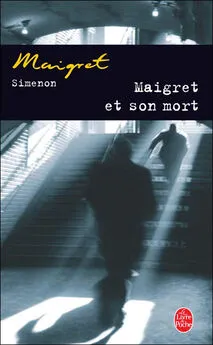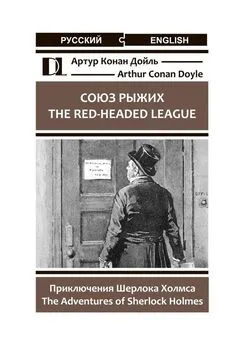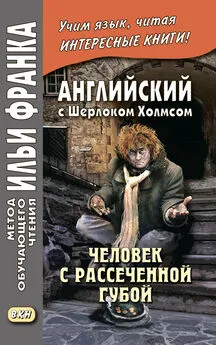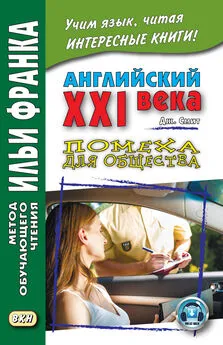John Lescroart - Son of Holmes
- Название:Son of Holmes
- Автор:
- Жанр:
- Издательство:New American Library
- Год:2003
- ISBN:9780451208750
- Рейтинг:
- Избранное:Добавить в избранное
-
Отзывы:
-
Ваша оценка:
John Lescroart - Son of Holmes краткое содержание
John Lescroart offers an engrossing historical mystery that takes us to a small French town in the dark days of World War I-where the rumor is that Auguste Lupa is the son of the greatest detective of all time. And his mysterious legacy may come to light as he attempts to solve the baffling murder of an intelligence agent...
Son of Holmes - читать онлайн бесплатно полную версию (весь текст целиком)
Интервал:
Закладка:
There was, in fact, only one event of importance, of real significance, attached to this locale, and that was the arrival, early the previous fall, of Auguste Lupa.
Obviously, that wasn’t his real name, but no one had any idea of what it really was, so it didn’t matter. In Belgrade, he’d been Julius Adler. At Sarajevo, he was Cesar Mycroft. In Milan . . . but the list is immaterial, though impressive. Always a reference to one of the Caesars in one of the names—perhaps some family connection. We’d followed him when he broke out of jail in Belgrade a year ago June, lost him briefly, found him again in Geneva, trailing him to Valence. When he actually took a job here, I’d been sent.
Lupa was the unparalleled genius among the agents of Europe and he seemed to work for himself, for no government acknowledged him. As far as we knew, he’d been approached before, by us as well as the British and Russians, and to all he’d feigned an absolute innocence of any knowledge of espionage or even of the affairs of politics. His loves, he said, included only food and beer. In spite of his protestations of naivete, he’d been jailed for espionage in three countries and had turned over quantities of information, always by leaving a bag loaded with papers in a locker somewhere. The material was always typed, never on the same machine, never with the same paper, almost never in the same language, and always frighteningly exact. He was the best, and he’d been trying to discover the brains behind Europe’s assassinations for two years. He obviously wanted us here, or he wouldn’t have let himself be followed, and yet he’d made no overtures of any sort and had forced me to contact him. It was barely possible that he didn’t suspect my associations, but it was probable that even as I sat down across from him, he was cataloguing everything he knew about me, deciding the time was right, and letting me set the tone of our relationship.
During lunch, I had asked him if he’d mind if a friend of mine were present at the next day’s meeting, and he’d said no. Accordingly, I invited Marcel Routier, and he arrived early the next morning, a little past nine o’clock. We sat outside in the sun for our coffee.
“He, of course, knows us,” he said.
I shrugged. “It’s nearly certain, but he may have been so attuned to his own inquiries that they haven’t crossed ours yet. In any case, we’ll see before long.”
He sipped at his coffee, took a bite of Fritz’s blueberry muffin, and looked out over the grounds. His hair was the color of straw, which made it look as though there was less of it than there was. It was a bit too long for my taste, just touching the tops of his ears, which he said was to make up for the lack on top. This morning he was wearing white pants and shoes, and a high-collared blue shirt, and, except possibly for his face, he looked much more the dandy than the spy. A lot of women had found him attractive, but I couldn’t understand why. Tania had said he had classic features, but too many of them. His forehead and nose commanded his face except when he smiled, at which time his teeth commanded everything. He was smiling now.
“Damn,” he said, “I wish I’d thought of getting Lupa with beer. Occasionally you show real genius, Jules.”
“Perception and devotion, hardly genius. When Fritz told me of the food at La Couronne, it started me thinking. A man who could cook as well as he did, who smuggled in spices for the integrity of his dishes, and yet who spent every morning drinking swill on the sidewalk . . . no, it didn’t make sense. That man’s taste buds were too refined for that beer, but he loves beer. Simple, actually.”
“Like Columbus’s egg,” he said.

At first, even at Lupa’s insistence, Fritz would not come to the table with us, but finally he overcame his prejudice against the chef dining with his patron when Lupa got him engrossed in a recipe for pheasant.
“The problem,” he said, “is that too often that delicate bird is overwhelmed by tarragon and sage, when it should be coaxed into accepting their favors, as a woman might accept other favors, with a little wine. Set the spices in the wine first, several hours before, and leave it chilled. Then—”
“Gentlemen,” I said, “I don’t mean to interrupt, but couldn’t we continue this discussion at the table?”
So the four of us sat to savor Fritz’s delicious sole and honey, followed by a subtle tournedos Béarnaise. The two chefs were very close to the same age, and they seemed to get along exceptionally well, which made the lunch even smoother than it would have been with the fine food. There was no hint of recognition between them when I introduced Marcel and Lupa, though once during the meal they glanced at one another after a remark Fritz had made about the state of cuisine in the Balkans.
“And now,” I said, as we were finishing our coffee, “shall we go to the cellar? Fritz, will you prepare the arbor?”
“He is a sensitive chef,” Lupa said when Fritz had gone. “Has he been with you long?”
“Actually, no. Less than a year.”
“Do you know where he was trained?”
A look of annoyance crossed Marcel’s countenance. Lupa must have seen it too, for he held up his hand and continued quickly. “I only ask about his training because it is so evidently superlative. The man is nearly a maître , and at his age that is very rare, indicative of great native skill and rigorous apprenticeship. As a chef myself, I would be interested to know where he studied.”
“To tell you the truth, I’m not at all certain. He arrived here on the recommendation of a mutual friend, and his cooking has never given me cause to question his background. My friend was living in Strasbourg before the hostilities began, so I gather he trained in one of the establishments there.”
“In Germany, then?”
Finally Marcel got in a word. “That point is most arguable, isn’t it?”
“Strasbourg is a German city,” Lupa asserted.
“Strasbourg is French! It will always be French, regardless of who its rulers might be.”
“Gentlemen, please!” I felt I had to step in or tempers, specifically Marcel’s, would flare.
For an instant Lupa seemed inclined to glare and continue the debate, but as I watched him, he swiftly conquered his rising emotions. He spoke contritely. “You’re right, of course, Monsieur Routier. I apologize. Strasbourg must once again fly the tricolor. I only meant to comment favorably upon Fritz’s cuisine, and I’m afraid my youth carried me into irrelevancies. He is a fine, fine chef—and you, Monsieur Giraud, are a lucky man to have him.”
There was an awkward moment as Marcel brought himself back under control, but I could see that Lupa’s obvious sincerity had made its mark.
“Well,” I said, clapping my hands, “should we begin the tour?”
We all rose from the table and I led the two down to my cellar, the left half of which was reserved for wines and the other for the beer apparatus. There were five stone crocks lined against the right wall, and the smell of yeast and ripening beer lent an aroma that I found pleasant to the room, but I knew it might prove too strong to a novice, even a beer-loving novice.
“As long as the wine isn’t opened down here,” I said, explaining, “it is ideal.”
As we walked along, I went over some of the steps in the brewing, and seeing the two of them smile patiently, I suggested we proceed to the tasting.
Off to the side of the house, I was blessed with a small arbor of trees, through which ran a clear stream where Fritz stored butter and beer. It was perfectly chilled, and I’d built a table of thick oak, where my friends and I came to sit and relax, out of the glare. We walked out to that table now and silently sat while Fritz brought the beer, left the bottles with us, and departed.
Lupa drank his whole glass at one swill, just as he had the day before at La Couronne, and yet conveyed the impression that he was savoring every drop. Marcel and I drank more slowly but with no less enjoyment. Lupa put down his glass and looked at me.
“Remarkable.”
“It pleases you?”
“There are certain advantages to being raised a rich man, eh?” said Marcel. “Certain opportunities to develop talents which otherwise would be buried under the mundane cares of survival.” He looked at Lupa, smiling. “He constantly makes me envious. Such beer, such a house, such a chef . . .”
“Such beer,” Lupa repeated, leaning back with his eyes closed.
I poured him another glass. For the next quarter of an hour we sat quietly enjoying the day, the beer, and . . . was it the company or the suspense? It seemed to me that we were all waiting for another to be the first to speak. Finally, I ventured cautiously, “Monsieur Lupa, what brings you here to Valence? Could you not accomplish your goals elsewhere, in a larger city?”
He looked at me quizzically, the touch of a smile lifting the corners of his mouth.
“What goals are those?” he asked.
“Oh, the usual for a young chef. Apprenticeship in a large hotel, assistantship to a master—”
But he cut me off. “A man who follows the usual routes obtains the usual results. Like so many other endeavors, cuisine is both an art and a skill. Of course, the French scoff at such an idea—meaning no offense to you, sir. Too often the path to excellence at a skill is a limiting experience, until the mind, finally, is trained to abhor innovation. And, beyond a certain mastery of skills, innovation is what lets a chef stand alone.”
When he finished his little speech, he had none of the habits one would expect from one so young, neither the slight embarrassment nor the brash defiance that often punctuates the speech of the insecure. Rather, he reached for his beer and drank.
“It’s clear,” said Marcel, “that you wish to stand alone.”
“Only a dullard would not.”
There was a moment of uncomfortable silence.
Finally, Marcel spoke. “But surely you don’t mean that.”
Lupa nodded. “If I hadn’t meant it, I wouldn’t have said it.”
“What of our men at the front, then? They don’t stand alone. In fact, all our hope resides in their fighting together, in the assumption that there are goals that must take precedence over individuality. Are all our soldiers dullards?” “Probably most. It’s always rather meaningless to generalize. Joffre certainly is.”
“Then you wouldn’t fight?” Marcel was getting angry.
Lupa took a breath. “Fortunately, I’m a citizen of the United States, and we are presently neutral. I’m afforded the luxury of not fighting.”
“But would you?”
“I wouldn’t like to be mere cannon fodder.”
“Because you wish to stand alone.”
“Exactly.” He drank some beer. “But I see you’re getting upset with me. I don’t mean to say that I don’t believe in causes, or that everyone should have individuality. I applaud our troops at the front. I only refer to men of adequate intelligence, and they are not so commonplace as is generally believed, who attain eminence in a field and then prove themselves incompetent because they lack imagination, individuality, call it what you will. Joffre can execute all the textbook moves. What he cannot do is adapt. Luckily for France, the Germans are even more stupid, or they would have taken Paris months ago.” He paused and drank again.
“The key then . . .” said Marcel.
“Is innovation,” Lupa continued. “I don’t mean to slur those who follow others’ examples, or those who learn a trade and become proficient at a skill. No. We need them. I simply bemoan the lack of creative leadership by people who are, nominally, our leaders.”
Читать дальшеИнтервал:
Закладка:









